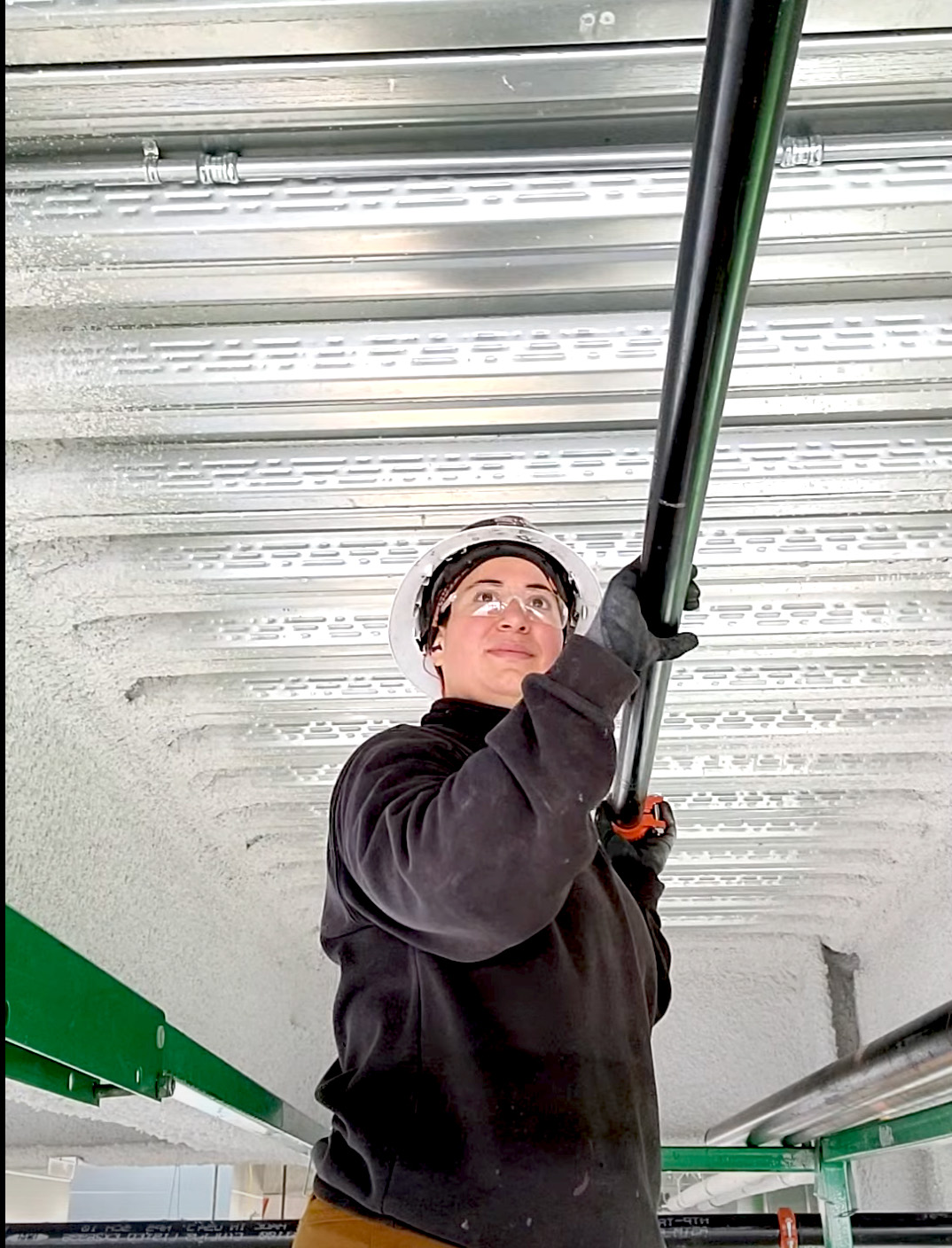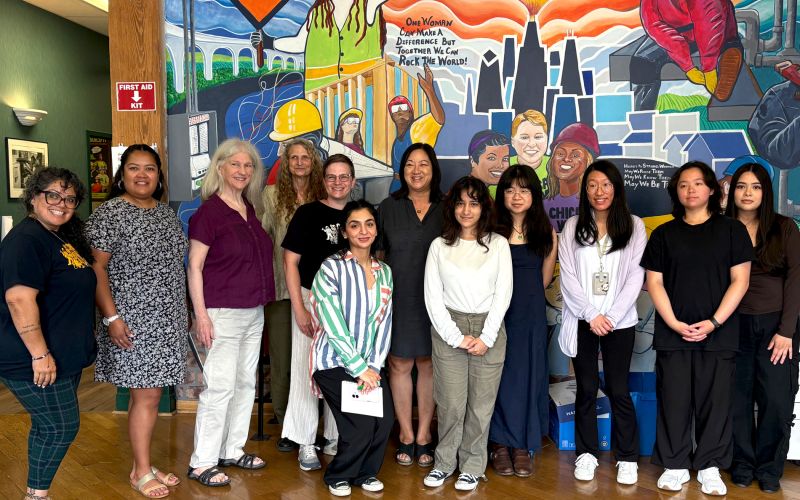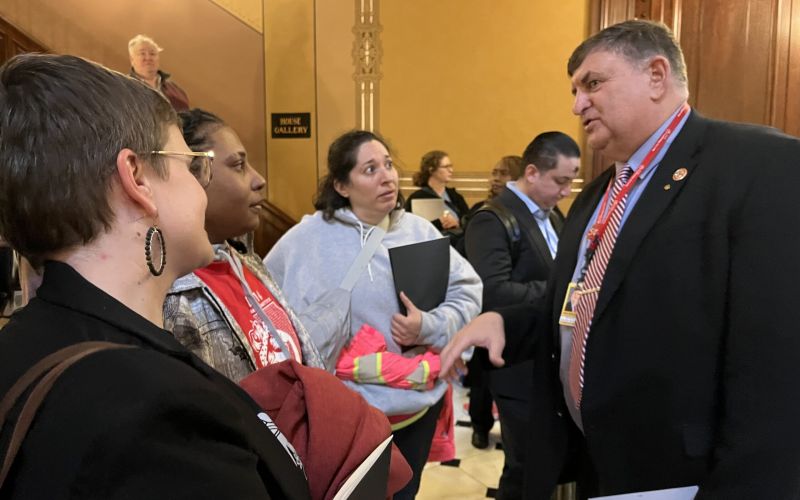October 13, 2025
Building Fire Protection Systems and Breaking Barriers
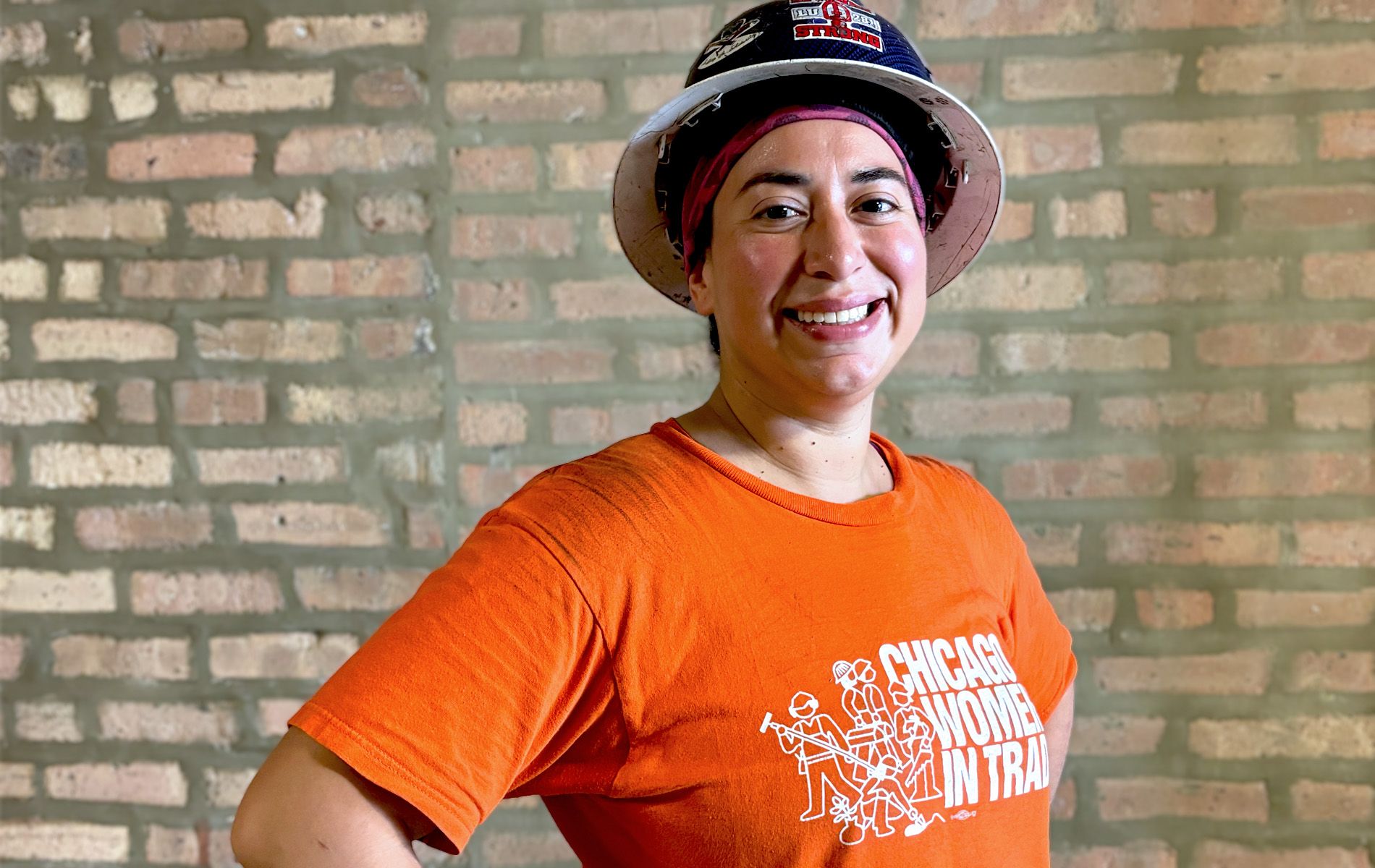
Alyssa has been working as a sprinkler fitter for nearly nine years, building fire protection systems in and around Chicago—from high-rise relocation projects to new construction. A graduate of Chicago Women in Trades’ Technical Opportunities Program, she now mentors the next generation while working toward becoming the first woman to own her own company as a fitter.
Q: How did you find your way to the trades?
“I was in my late twenties, right around that age where you fall off your parents’ insurance. My dad was a carpenter with Local 1, so at 26, I was off. I wasn’t doing anything with my college background from DePaul University, and I needed insurance, a pension, and benefits. I was a nanny working for cash, driving for Uber and Lyft to make ends meet.
“My dad was talking to people about me getting into the trades. Word on job sites was that sprinkler fitters were opening their apprenticeship for the first time since the recession. They didn’t take any classes for at least 10 years. Someone I knew was going to apply, and I thought, ‘Why not me too?’ The worst that could happen was I’d find out I didn’t like it.
“After I applied, I searched online for “women in the trades” and found Chicago Women in Trades. The location was close to my home, so I applied for the Technical Opportunities Program (TOP). The timing was perfect—I started the program, and six months later, they scheduled the aptitude test. I’d already been preparing through TOP. After the test came the interview, and I graduated TOP that summer. By year’s end, I got the call saying I was in the first class they were accepting.”
Q: What did you learn in the TOP class?
“The hands-on days were incredibly valuable. My dad, being a carpenter, made me a do-it-yourselfer, but that didn’t mean I was mechanically inclined yet. TOP introduced me to all the mechanical and finishing trades and how they all work together to complete a project. When I got into the field, I could identify what I was looking at, and I knew who to talk to if I had a conflict.
“The test prep was excellent, too. I was never stronger at math than when I was in TOP. We practiced multiple times a week. I’ve forgotten those multiplication tables now, but eight years ago, I could recite them perfectly.
“TOP also provides amazing resources. When we toured the electricians’ program, they mentioned their Jumpstart program—three Saturdays before their aptitude test, where they review math and share tips. Even though I wasn’t planning to be an electrician, I attended those classes to do better on the aptitude test.”
Q: What does a sprinkler fitter do?
“Sprinkler fitters install, maintain, service, test, and inspect fire protection systems.
“When I was an apprentice, I mostly did new construction. You learn to read blueprints, find your marks and elevations off bare floors and walls, and suspend the whole piping system in the air. You’re watching the building go up and the entire piping system come together. You drill anchors or hang beam clamps to support the pipe, bring it up—sometimes 21-foot lengths that are four or six inches wide—and connect it piece by piece. If you’re in a warehouse, you keep that elevation for hundreds of feet. In a school, you’re coming down hallways, turning into classrooms, and making sure every area, including closets, is protected by a sprinkler head.
“Once everything’s installed, we test the system—first pressurizing it with air, then introducing water. We pump systems up to 200 psi, and they have to hold for two hours to pass the fire department inspection.
“When working on an existing system, a fitter could be repairing or modifying a system that has already been in service. Right now, I’m a foreman with FE Moran, working downtown on relocation projects—a law firm remodels three floors, guts everything, and leaves the existing sprinkler system. Once they put up new walls, we will modify the system for the new office space.
“Here’s something people don’t know: sprinkler water smells terrible because it’s been trapped for at least a year and comes out black! When people complain about the smell, we joke that it smells like money.
“I’ve worked on residential buildings, schools, fire departments, police stations, car washes, airplane hangars, and O’Hare Airport’s international baggage terminal. You have to be comfortable with heights—you could be 45 or 50 feet high in a gymnasium or on a boom lift. For me, the most satisfying part is looking back at what I physically created.”
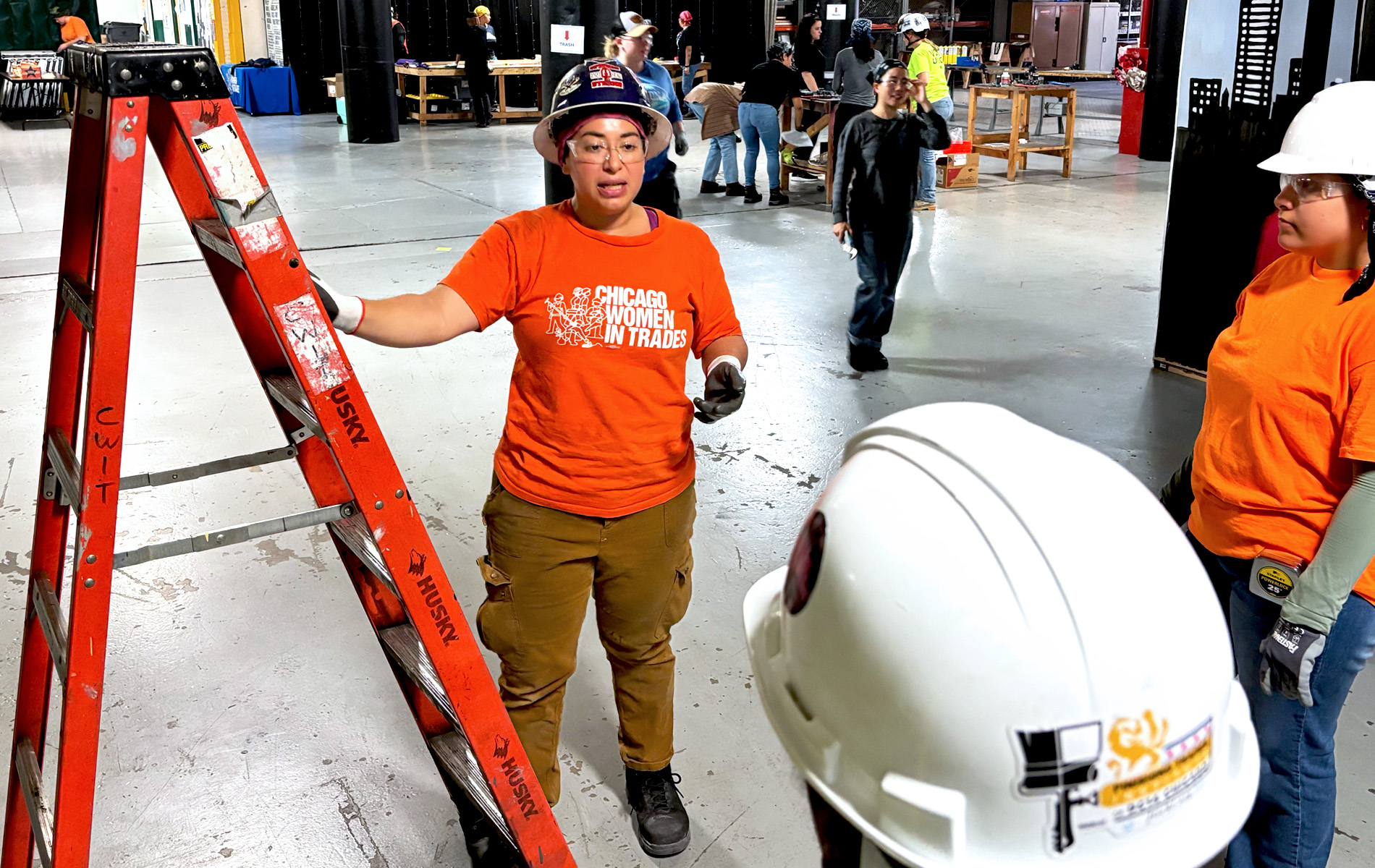
Alyssa works with students in CWIT’s TOP class as part of UA Day, a hands-on training day organized by union tradeswomen in the United Association.
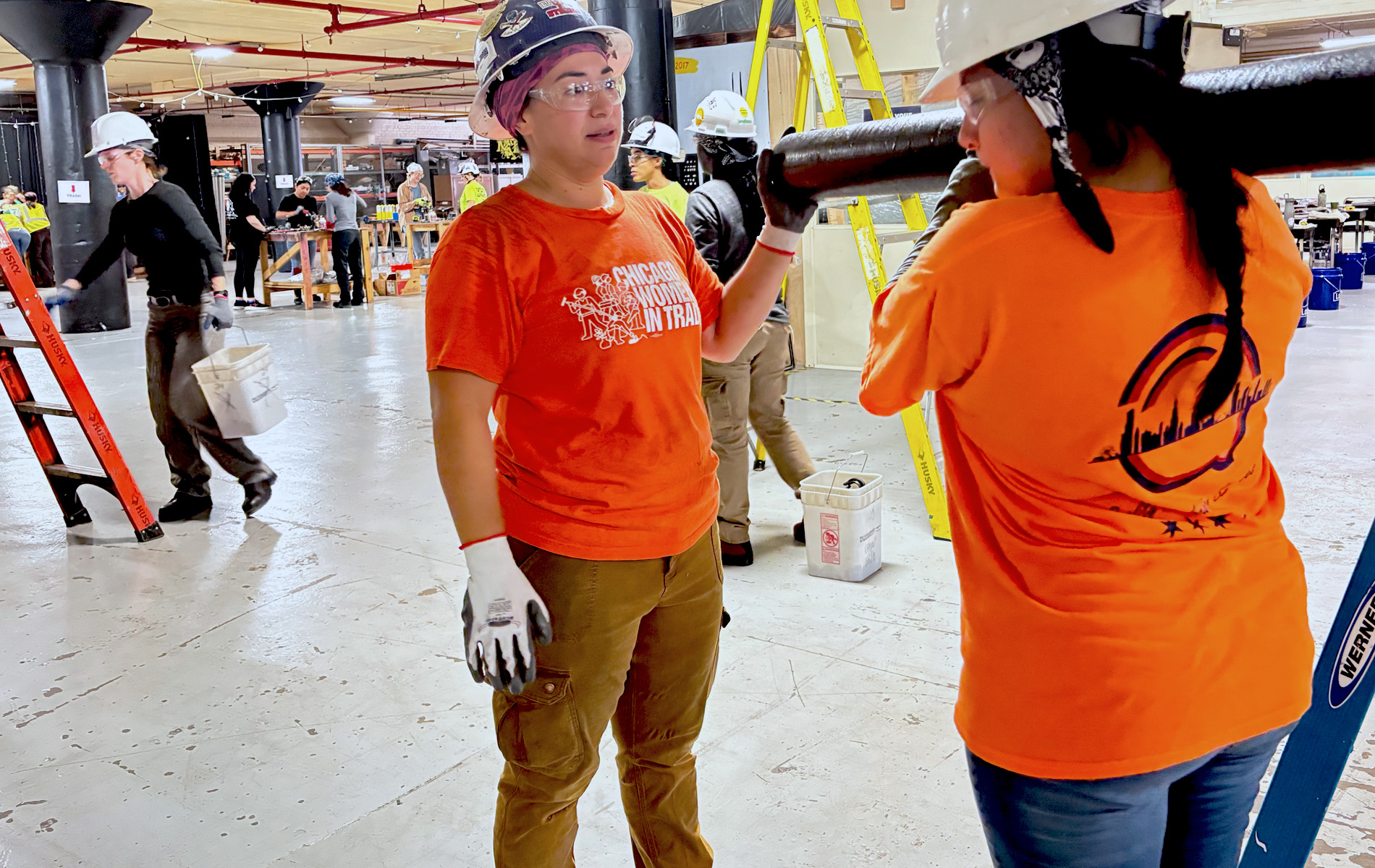
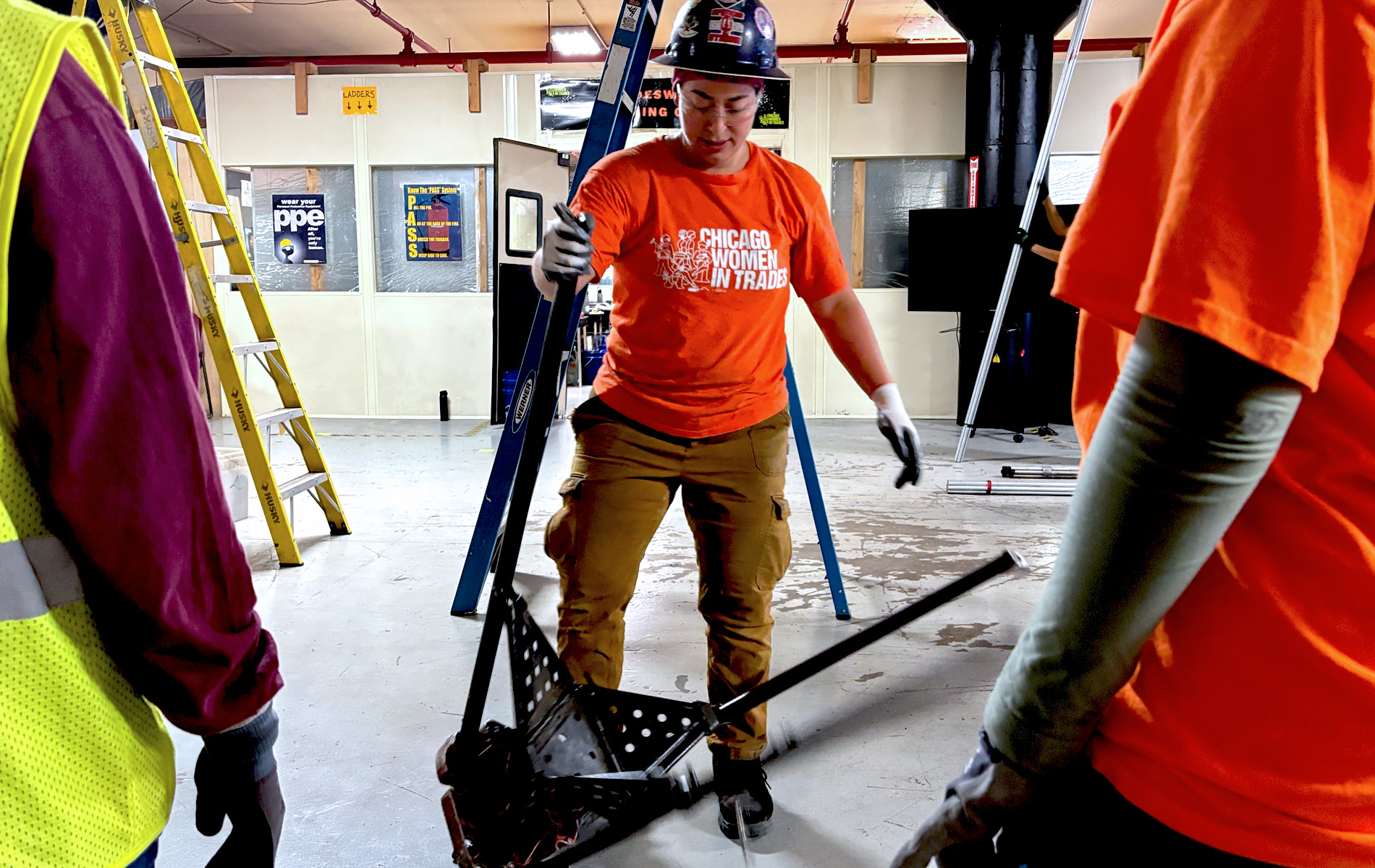
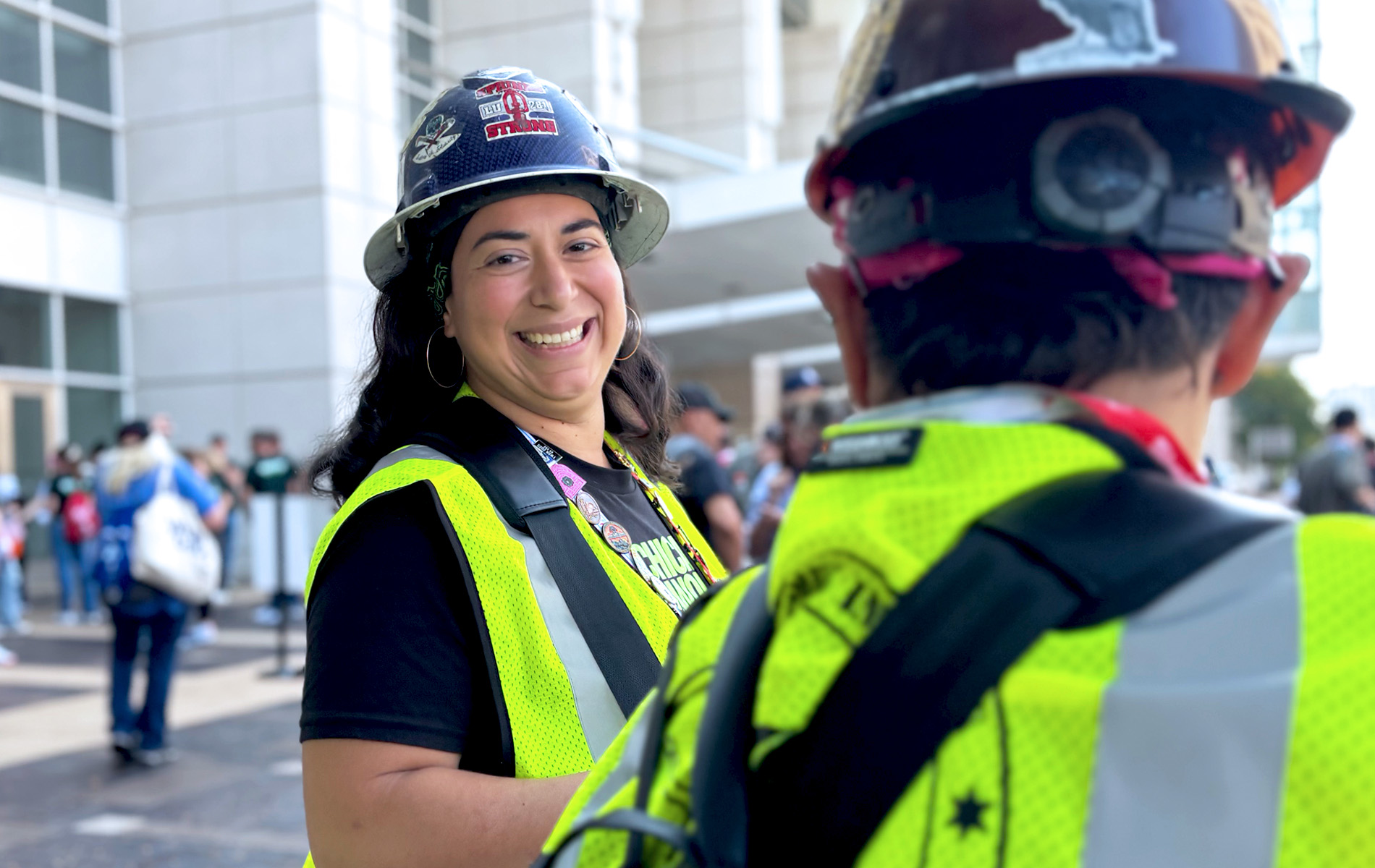
Alyssa at the annual Tradeswomen Build Nations conference, marching in CWIT’s drumline.
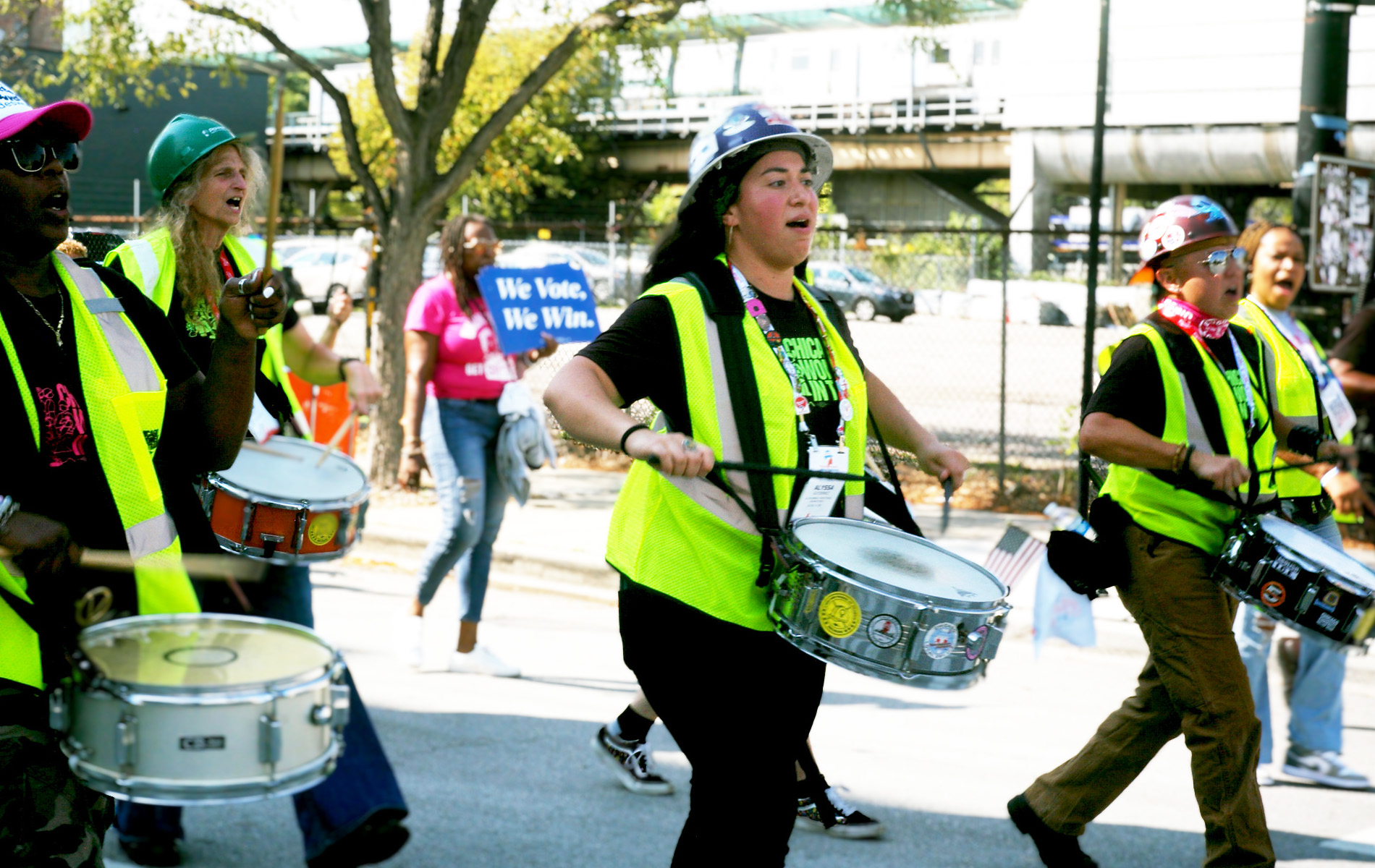
Q: What has your experience been like as a woman in this trade?
“I had a really good experience coming up. You’ll always get men who question why you’re there, but it’s usually genuine curiosity. Some guys try to give women easier jobs, while others have the attitude of ‘you’re here to work just like me.’
“I worked with one foreman who made me do everything. Some guys would get a chip on their shoulder about that, but I appreciated it because then I knew how to do everything. I was always outspoken. It didn’t take me long to say, ‘This isn’t working for me. What am I doing wrong?’ or ‘You did that faster—tell me your secrets.’ I think people appreciate that positive attitude.
“The company I apprenticed with has a rough reputation—they’re a revolving door. People used to apologize when I said I worked there. For me, it became a point of pride. If I can make it here, I can make it anywhere.
“You’ll hear comments like ‘it’s not too late to change your mind,’ but those roll off your shoulder. I’m pretty assertive and don’t take a lot of crap on the job site. Most guys are actually intimidated to talk to me, which is fine.
“As a foreman, I’ve had professional learning experiences with clients critiquing my work. Sometimes I wonder if people underestimate me because I’m a woman or look young, but by the project’s end, everyone’s happy and willing to work with me again.”
Q: What challenges did you face in the early part of your career?
“Around my second year, there were days when I thought, ‘Why am I doing this?’ I tell women in TOP: ‘You have to give yourself grace. You’re supposed to be struggling because it’s something new.’ I felt like I wasn’t fast enough, not efficient enough.
“As women, we’re already hard on ourselves. In a male-dominated industry, you feel like people are watching, judging what you’re capable of. I was determined to keep showing up and match what others were doing.
“Things didn’t click until my third or fourth year. The whole picture didn’t come together until I started proving to myself that I knew what I was doing. When I started coming back to TOP to help with Pipe Trades Day, explaining things to other people made me realize I actually knew what I was doing.”
Q: Tell us about a particularly rewarding project.
“I was still a fifth-year apprentice, with a first-year apprentice working under me. That was the first time that I had to problem-solve entirely on my own. All the ideas were mine. Because I had more experience, I installed about 90% of the large warehouse project on my own. At the end, I looked at what I’d accomplished and thought, ‘Look at what I’m capable of doing.’
“What was really rewarding was teaching that new apprentice. I could finally share all this knowledge, so he didn’t have to figure it out on his own like I did. He is already running work now, and I’m proud to say that was my first apprentice.”
Q: How did you get involved with Chicago Women in Trades advocacy work?
“TOP made such an impression that I couldn’t wait to come back and share what I’d learned. I always left feeling happier and lighter. Being a minority in my union and at work made me want to get involved.
“I’ve built this reputation, so now my union asks me to participate in events. I’ve done outreach, staffed tables, attended Women Take Over Springfield, and worked with the AFL-CIO on policy issues, such as FMLA. Tradespeople don’t necessarily benefit from this because we have our own private insurance funds; however, if it’s a state benefit, we should be able to access it. I’m still learning, but I’m building that foundation.”
Q: What does being part of the union mean to you?
“Especially given the current political climate, I’m really glad I got into the trades because it introduced me to union life. Being part of a community that has solidarity and can mobilize behind issues matters. Without the Chicago Women in Trades community, I wouldn’t be informed about movements that need support.
“At conferences, hearing what other women are accomplishing inspires me to stay involved with my union. I hope we grow large enough to start a women’s committee. My goals are things like maternity leave and family leave—why don’t we have those yet?”
Q: Where do you see yourself in the future?
“I have aspirations to be a business owner. I’d love to be the first principal owner who’s also a woman fitter. There have been companies under a female umbrella, but those owners aren’t the fitters themselves. I want to be the owner and the installer.
“I like to change quite often, which suits the trades. I want to start that business and see where it takes me. I’m open to anything—becoming an inspector would be awesome too.”
Q: What advice do you have for women considering the trades?
“The trades can change your life. It’s more than just the tools. If you don’t want to work with tools forever—or if that’s what deters you—you’re not looking at the bigger picture.
“If you’re personable, consider becoming a business agent and advocating for your members. If you’re book smart, work toward becoming an instructor. If you’re a people person, get into organizing. I’ve heard of unions paying for law degrees because they needed people with that skill.
“The financial security and skills you’ll have for the rest of your life are real. I’m pro any trade you want to get into. I advocate for Local 281—we’re a close-knit, small local of about 1,000 working members. Your reputation is everything. It’s your bread and butter, your paycheck.
“For anyone who wants to travel, the trades aren’t limited to staying local or even within the country. Skilled workers are higher up on visa application lists for other countries. I haven’t taken advantage of that enough yet, but I’d like to.
“To the women: you’re allowed to have a bad day, but come back with a fresh attitude. Guys are allowed bad days repeatedly, and nobody cares. But they’ll remember the moody girl. We stick out more in people’s minds.
“When women develop skills like installing fire protection systems, it builds confidence. That confidence makes them better people, better mothers, better friends, better partners.”
